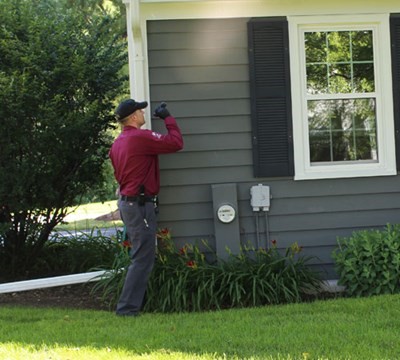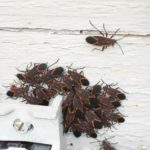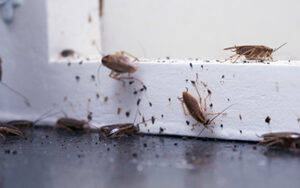
Batzner Pest Control prides itself on being an industry leader in innovative pest management practices. One practice that we particularly excel in is our use of Integrated Pest Management, a more effective and environmentally responsible alternative to traditional pest control methods.
Integrated Pest Management (IPM) vs. Traditional Pest Control
The difference between Integrated Pest Management (IPM) and traditional pest control can be summed up as the following: IPM is devoted to finding the best solution to a pest issue, rather than the easiest. This means that IPM rejects traditional pest management’s “one size fits all” method of solving every pest issue with an excessive amount of pesticide treatments. Rather than routinely applying unnecessary chemicals, IPM takes into account the individual situation, and focuses on preventative solutions to pest problems. Karl Rowell, Batzner’s QA & Safety Manager, describes IPM as, “A holistic approach to pest control. It involves a number of control measures in combination with working with our clients in a partnership to provide a pest free environment. Both Batzner and the client play an equal as well as vital role in the ongoing prevention program.”
Service specialists trained in IPM employ a three-part approach consisting of inspection, identification, and treatment. The treatment determined by the first two steps typically focuses on treating the causes of pest problems, such as excluding entry points and eliminating food and water sources, and pesticides are only used when necessary.
How Batzner Utilizes IPM
Dan Stawicki, a Operations Manager here at Batzner, summarizes our use of IPM by saying that, “Batzner looks for mechanical and cultural changes to better improve chances of a pest free environment with limited use of chemical applications.” Our use of IPM is most apparent in our pestfree365 program, where we establish an ongoing partnership with the client founded on IPM principles. The BAN™ System includes service visits during peak times of pest activity and focuses on preventing pest issues from occurring through exclusion methods and educating the client on ways to reduce the attractiveness of their home or business to pests.
Your Role in IPM
For IPM to be successful, you need to have an active role in your pest control program and view it as a partnership with your pest control company. Monitor and communicate what goes on in between your service specialist’s visits, and keep up on the daily cultural practices that make your home or business less appealing to pests. The National Pest Management Association provides a few examples of these practices and things to keep an eye out for below:
- Dispose of garbage regularly and store in sealed containers.
- Keep basements and crawl spaces well ventilated and dry.
- Look for rodent droppings and gnawing marks, which indicate a pest problem; determine where the rodents are gaining entry and eliminate entry.
- Seal cracks and holes on the outside of the condominiums, including entry points for utilities and pipes.
- Keep tree branches and shrubbery well trimmed.
- Repair decaying exterior wood on condominiums as some insects are drawn to deteriorating wood.
- Replace weather-stripping and repair loose mortar around basement foundation and windows.
- Don’t overlook proper drainage at the foundation; install a drainage system, which will channel water away from the home.
- Make sure that there is no standing water on flat roofs
More tips related to Integrated Pest Management that help prevent pests in your home or business can be found on our blog and on the National Pest Management Association’s website.
Integrated Pest Management is proven to be the most effective and responsible approach to pest control. Call 866-591-3519 or contact us online today for more information or to join an Integrated Pest Management partnership with Batzner Pest Control!
Need a pest control estimate?
We'll call you! Our representatives are fast and friendly.
What is Integrated Pest Management (IPM)? in Wisconsin
Serving Wisconsin





